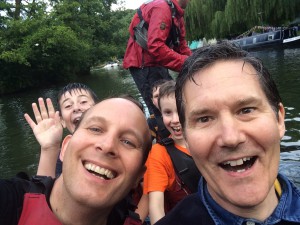So what’s involved in becoming a leader? Well it really depends on the type of role you’re thinking of volunteering for. But generally you will need to complete an application form which the Group Scout Leader, will be able to provide. Also you will be asked to complete a DBS form (Disclosure and Barring Service). This is required for all volunteers within the Scout Association.
You may also have to attend some training courses in due course, such as First Aid and Child Safety Awareness; but this shouldn’t put you off.
What are the roles:
Leader
The Leader has overall responsibility for the running of the Section. This means planning and delivering the Balanced Programme with the help of Assistant Leaders and Section Assistants.
Assistant Leader
Assistant Leaders support the Leader in delivering the Balanced Programme. This can mean anything from helping to plan and run games or activities, or helping to keep records up to date. The responsibilities of an Assistant Leader will depend on their own interests and on what they agree with the Leader.
Section Assistant
All our Sections need helpers. Outdoor activities and nights away require a certain number of adults in relation to the number of young people. So by helping out whenever they can, Section Assistants could be enabling an extra 6 (in the case of Beavers) or 12 (in the case of Scouts) young people to participate in Scouting.
More importantly, Section Assistants provide invaluable support to Leaders and Assistant Leaders.
Remember to be a leader no previous Scouting experience is needed. Energy and enthusiasm are the qualities we are looking for.
If you think you might be interested in helping out in one of the sections then contact our Group Scout Leader for a chat and to arrange to enjoy a taster evening with one of the sections. Or alternatively visit the Scout Association’s website: Scout Association
Don’t let the FUD – fear, uncertainty, doubt – scenario put you off becoming a leader. Don’t think that you aren’t the type of person needed to become a leader. Look at the real life roles of some of our current leadership: librarian, sales manager, accountant, housewife, environmental scientist. None of these roles would lead you to naturally think that they were a leader in the Scout movement. But they’ve become involved for the very reasons that Bear Grylls mentioned and also because they find it very rewarding.
Yes, commitment and time are an issue for many; including those that are already on the leadership team.
But if sufficient people come forward to take up leadership roles then the commitment and time required to fulfill these roles is shared.
And remember if you can only commit to one week in four then that shouldn’t stop you thinking about volunteering.
Pete Fry
Group Scout Leader
gsl@wargravescouts.org


